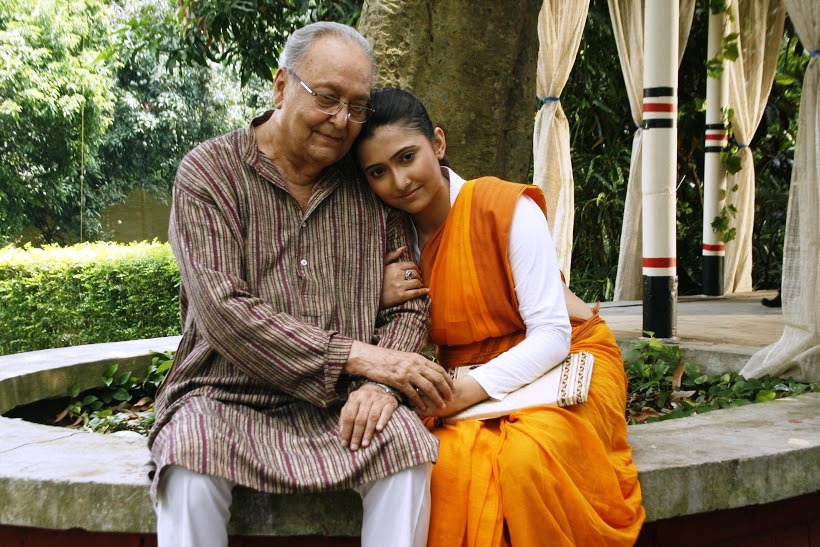The term Parobash means those who live away from their homeland. The debutant director, Niladri Lahiri, adds that it could also be extended to refer to people who do not live within themselves, whatever that is supposed to mean. The press release boasts that “This is the first Bengali film based out of NRIs in the Gulf Region.” However, the only slices of the ‘Gulf Region’ you can see in the film are very badly edited and shot slices of some Gulf city, maybe Dubai, done probably using a drone or making do with stock shots of skyscrapers, speeding lights and perhaps some footage from a shopping mall.
Let me just start the review by stating that Parobash is a model lesson on how a film should never be made. The script is so weak that it thrashes about here and there without having a clue about what is happening to whom, where, why and how. You just cannot get the timelines between the past, the present and the in-between at any point of the film. The story is about a beautiful young woman Sampurna (Sampurna Lahini) with Jonaki, a small daughter who stays in the Gulf with her high-placed husband Arko (Joy Sengupta). But she has been away and when she returns, she finds that her husband has changed completely from what she knew him to be. She does not know but he is having a roaring affair behind her back.
The film opens with Sampurna cycling on the tree-lined roads of Santiniketan to deliver some notes back to her friend. She turns around every now and then as if she thinks someone is stalking her. The argument is left at that and the script suddenly flashes forward to 12 years later when the beautiful Sampurna has come to visit her grandparents at Shantiniketan. The grandmother (Alakananda Banerjee) has lost her speech from a cerebral attack.
Soumitra Chatterjee is terrible as the grandfather who guffaws all the time without reason which always sounds artificial and downright stupid. He is even coerced into singing a Tagore song in his own voice which is unfair on an actor of his merit. Alakananda Banerjee is wasted in a role where she cannot speak. Poor Pradip Mukherjee has been roped in to play ‘cupid’ so that Arko and Sampurna can meet and revive their fight long ago on the streets of Bolpur in Santiniketan. Mukherjee once says that he dealt in iron and steel, and the very next minute, he says he was a professor in a college and Arko was a student who slaved through his classes while his widowed mother and sister worked hard to give him an education. The first time we are introduced to Arko in Santiniketan where he meets Sampurna for the first time, he is nothing more than a ruffian drinking away with two equally good for nothing friends which does not match up to his ‘struggle to establish himself’ as repeated ad infinitum by his professor! It is sad to note that Soumitra Chatterjee, Pradip Mukherjee and Alakananda Banerjee all made their cinematic debuts in films directed by the great Satyajit Ray!
Of the rest, poor Joy Sengupta, a brilliant actor, is reduced to a face filled with ceaseless frowns who is more often than not, parked in front of his laptop rather than interacting with his wife, daughter or mistress (Smita Chatterjee). The latter cannot act to save her life and is also a bit too bulky to gracefully carry off the short dresses she is made to wear.
I have hardly seen such a bad piece of editing in my entire career as film critic. The cinematography follows suit even though it appears the producer has released ample funds to give the film a lavish mounting. There is no ‘Gulf’ in the entire film because this story can happen anywhere in India and the ‘Gulf’ element does not come across in a single scene. The background score is fine in the beginning but tends to disturb and annoy as the film plays on and often goes out of tune with the film in the latter half.
If I have to put it bluntly, it is nothing short of a crime for anyone to waste so much money, resources and manpower on a terrible film like Parobash.
Bengali, Drama, Color


